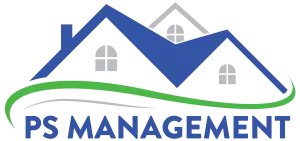Homeowners’ Association (HOA) Financial Transparency is a crucial aspect of responsible community management. It refers to the open and accessible disclosure of the association’s financial information to its residents. By prioritizing financial transparency, HOAs can build trust, foster accountability, and ensure homeowners are well-informed about how their fees are utilized. In this article, we’ll explore the significance of HOA Financial Transparency, its benefits, and how it strengthens the relationship between the association and its residents.
The Importance of HOA Financial Transparency
Financial transparency is at the core of good governance within an HOA. It allows residents to have a clear understanding of the association’s financial health, how funds are managed, and where their contributions are allocated.
By being transparent with financial information, HOAs can create an environment of trust and openness, promoting a strong sense of community involvement and cooperation.\
1. Building Trust and Confidence
When homeowners have access to detailed financial reports and budgetary information, it builds trust in the association’s management. Transparent financial practices demonstrate the board’s commitment to responsible stewardship and decision-making, instilling confidence among residents. It helps also with the transferring of duty amongst board members. Having a consistent and easy to read accounting and reporting system, is essential to accommodate all various math and accounting backgrounds that will exist on a HOA Board of directors.
2. Empowering Informed Decision-Making
Financial transparency empowers homeowners to make well-informed decisions during HOA meetings and elections. Access to financial data enables residents to assess proposed budgets, understand the implications of financial decisions, and actively participate in discussions.
3. Preventing Mismanagement and Fraud
Transparency acts as a safeguard against potential mismanagement and fraud within the association. When financial information is readily available for review, it becomes easier to identify and address any irregularities or discrepancies promptly. Most current accounting systems have other built in protection such as bank account and payment encryption, which a must have tool for any large community management organization.
4. Encouraging Responsible Spending
HOAs that practice financial transparency are more likely to adopt responsible spending habits. Knowing that residents can scrutinize financial records motivates the board to make prudent financial decisions and allocate resources wisely.
5. Strengthening Community Relations
Financial transparency enhances communication between the HOA board and homeowners. Openly sharing financial information fosters a sense of partnership and cooperation, as residents can see how their financial contributions directly impact the community’s well-being.
Key Elements of HOA Financial Transparency
1. Regular Financial Reports
HOAs should provide residents with regular financial reports, typically on a monthly or quarterly basis. These reports should include income and expense statements, account balances, and details about any reserve funds.
2. Budget Presentations
The annual budget should be presented to homeowners before its implementation. This includes outlining planned expenditures, proposed projects, and how the association plans to allocate funds for the year ahead.
3. Accessibility of Documents
Financial records and other related documents should be easily accessible to homeowners. HOAs can achieve this by making information available through secure online portals or by providing hard copies upon request.
4. Open Meetings and Q&A Sessions
HOA board meetings should be open to all residents, allowing them to observe financial discussions and ask questions. Specific Q&A sessions can be dedicated to addressing financial matters and any concerns raised by homeowners. All HOA’s in Texas and others states already have this written law, but it ‘s a great general practice, regardless where your HOA or Condo association is located.
5. Engaging an Independent Auditor
HOAs can further reinforce financial transparency by hiring an independent auditor to review financial records periodically. An external audit provides an unbiased assessment of the association’s financial practices. Making these Audits available to the homeowners in the community helps give them a sense trust and organization amongst the HOA Board members.
Conclusion
HOA Financial Transparency is a cornerstone of effective community management. By openly sharing financial information, HOAs build trust, encourage community involvement, and promote responsible decision-making. Transparent financial practices benefit both the association and its residents, fostering a stronger, more accountable, and harmonious community.
If your association is looking to operate with a new level of transparency, reach out to our team for a HOA Proposal Request today and see what it’s like to see how clear and easy HOA










